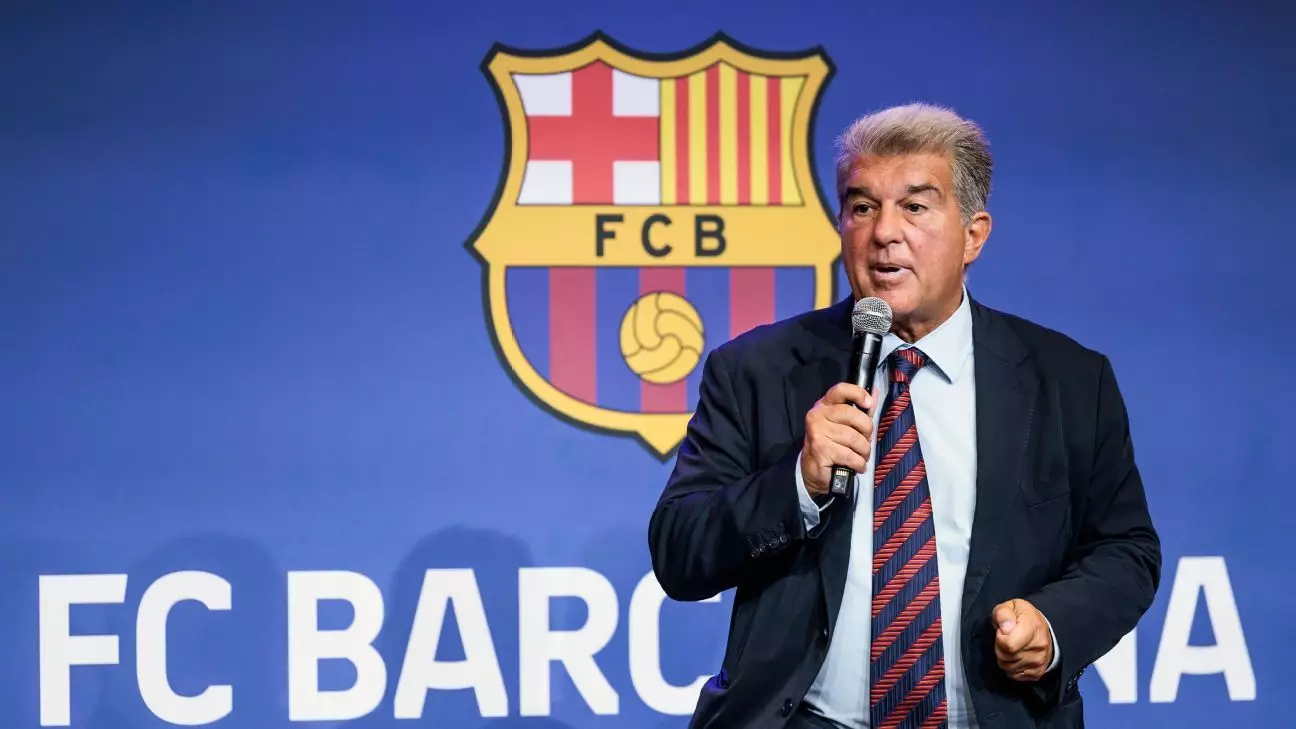The world of football is fraught with highs and lows, but when a leading club faces turmoil at its management level, the integrity of its future is called into question. FC Barcelona, a staple in the realm of global football, is experiencing a significant crisis under the leadership of president Joan Laporta. His administration is now under immense scrutiny following a series of blunders that have rocked the club to its core, particularly concerning the failed registrations of key players Dani Olmo and Pau Víctor. This incident has sparked outrage among various factions within the club, with many calling for Laporta’s immediate resignation.
The collective discontent surrounding the management of FC Barcelona has galvanized at least ten different opposition groups to come together in protest. Spearheaded by notable factions such as Victor Font’s Sí al Futur and Joan Camprubí Montal’s Som un Clam, these parties have cited “negligence” as a central issue pertaining to the unregistered players. The failure to meet the Dec. 31 deadline for compliance with LaLiga’s financial fair play rules has become a significant point of contention. As tensions rise, the call for a vote of no confidence against Laporta looms large, underscoring a critical fissure between the club’s leadership and its supporters.
The dissatisfaction extends beyond the immediate crisis over player registrations. Clubs, fans, and analysts alike are closely examining various decisions made by Laporta’s administration that contribute to growing unrest. The handling of the club’s partnership with Nike, involving commissions paid to intermediaries during contract renewals, has raised eyebrows. Additionally, the closure of the singing section at the Olympic Stadium over disputes with supporters has further alienated the fan base. The controversial €100 million ($104.2 million) sale of VIP seats at the soon-to-be-renovated Camp Nou has also stirred controversy, adding to a growing list of grievances that opposition groups cite as valid reasons for Laporta’s resignation.
In an attempt to rectify their missteps, Barcelona has announced their intention to appeal the decision made by LaLiga and the Spanish Football Federation (RFEF) regarding Olmo and Víctor’s registrations. The appeal will be directed to the Consejo Superior de Deportes (CSD), the highest sports court in Spain. Club officials are optimistic, believing that their appeals will find favor and allow the players to join the squad for the upcoming Spanish Supercopa. However, complexities surround their argument, particularly regarding the interpretation of regulations that prevent players from being registered twice in the same season. This legal battle comes as the team prepares for critical matches against Athletic Club, with the potential of facing formidable opponents like Real Madrid or Mallorca.
Compounding the crisis are contractual clauses in Olmo and Víctor’s agreements that permit them to leave the club at no cost should they remain unregistered for the second half of the season. This precarious situation has led to visible frustration among the players, although reports suggest that neither is actively contemplating their departure—at least for the time being. The uncertainty surrounding their registrations raises questions about the long-term effects on team morale and cohesion, as players grapple with their futures amidst administrative blunders.
The landscape at FC Barcelona is undeniably tumultuous, with internal and external pressures intensifying. As Joan Laporta’s presidency faces scrutiny and dissent, the need for decisive leadership and accountability has never been more crucial. The actions taken now will significantly influence not only the club’s immediate fortunes but will also shape its legacy in the annals of football history. With opposition groups rallying and legal challenges on the horizon, the upcoming weeks may very well prove pivotal for both the president and the storied institution that is FC Barcelona. The world of football will be watching closely to see how this saga unfolds.

